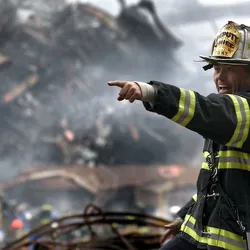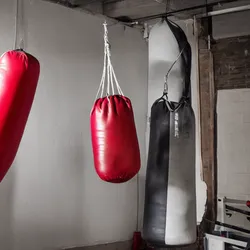
Level 1:
Former President Donald Trump sued CNN for saying mean things about him. He wanted $475 million. The lawsuit said CNN told lies about him, comparing him to a bad person named Hitler. Trump’s lawyers said CNN wanted to make people think he was bad and not let him be president again. The judge said calling him “Hitler-like” was just an opinion, not a fact. The case is over now, but will media be careful with their words in the future? Is it okay for big news to say bad things about people? What do you think?
Level 2:
Donald Trump, the former president, sued CNN for $475 million. He said CNN told untrue things about him, comparing him to Adolf Hitler. Trump’s lawyers argued that CNN wanted to harm his reputation and stop him from running for president again. But the judge said calling him “Hitler-like” was just an opinion, not a proven fact. So, the lawsuit is now finished. This case brings up important questions: Should big news be careful with their words? Can media say bad things about people? What do you think about this decision?
Full Story:
In a fiery legal battle that captured the nation’s attention, former President Donald Trump took on media giant CNN with a whopping $475 million defamation lawsuit. Trump’s legal team claimed that CNN had unleashed a relentless barrage of false and scandalous labels, likening him to the infamous Adolf Hitler. The suit alleged that the network sought to defame him and sabotage his political aspirations.
The crux of the lawsuit hinged on the network’s use of the term “Big Lie” in reference to Trump’s unfounded claims of election fraud during the 2020 elections. But could this strong-worded phrase, “Being ‘Hitler-like’” be merely an opinion or a statement of fact? US District Judge Raag Singhal weighed in on the matter, dismissing the case, citing that such statements were subjective opinions and not verifiable facts that could support a defamation claim. But what about the potential damage such rhetoric could inflict on one’s reputation?
Trump’s legal team argued that CNN’s repeated use of these derogatory terms was an attempt to sway public opinion against him, with the ultimate goal of preventing him from running for president again in 2024. The lawsuit called out specific CNN anchors and guests who employed the term “Big Lie” in their coverage of Trump’s election fraud claims. But is this enough to prove defamation, especially considering the stringent First Amendment protection for journalists?
The question arises: Does being labeled “Hitler-like” fall under protected journalistic expression, or does it cross the line into defamation territory? The battle between free speech and accountability for media organizations is a contentious one, and this lawsuit thrust it into the spotlight. Can media outlets escape legal repercussions by claiming their statements are merely opinion?
Trump’s vow to sue other media outlets that defamed him during the 2020 election looms large. But how will these legal pursuits fare when the burden of proof lies with him to demonstrate “actual malice or reckless disregard for the truth” on the part of the media? The complexities of proving defamation against powerful media houses become apparent as this legal saga unfolds.
Despite Judge Singhal’s dismissal, one cannot help but wonder about the broader implications of the case. Is this ruling setting a precedent that media outlets can hide behind subjective language to avoid accountability for their coverage? And where does this leave the individuals whose reputations may be tarnished by such strong accusations?
The legal battle also raises questions about the responsibility and ethics of media organizations. Are they merely reporting facts and truths, or do they wield significant influence to shape public perception? The idea of a “trusted” news source may be called into question when they are accused of pushing a particular narrative to achieve their desired political outcomes.
Additionally, Trump’s lawsuit reminds us of the power dynamics at play in media coverage. The clash between a former president and a media titan underscores the struggle for truth and objectivity in journalism. Can media outlets maintain **impartiality **when covering powerful figures, or are they susceptible to biases that may color their reporting?
As the lawsuit progresses, it also brings attention to the impact of sensationalism and hyperbole in news reporting. The use of inflammatory language and labels like “racist,” “Russian lackey,” and “insurrectionist” raises concerns about the journalistic integrity and the pursuit of honest, fact-based reporting. How can we foster a media landscape that promotes accuracy and accountability over sensationalism?
Moreover, the very nature of defamation lawsuits raises questions about the thin line between criticism and defamation. When does criticism cross the boundary and become defamatory? Are public figures like Trump more vulnerable to defamation, and should the burden of proof differ for them?
In conclusion, Trump’s defamation suit against CNN has sparked a pivotal conversation about media accountability, freedom of speech, and the role of journalism in shaping public opinion. While the court may have ruled in favor of CNN based on the subjective nature of the language used, the broader implications of this legal battle will continue to resonate in the media landscape. As we seek to foster a society that values directness, clarity, and honesty in reporting, it is crucial to find a balance between First Amendment rights and the pursuit of truth, while holding media organizations to high ethical standards. Only time will tell how this legal saga unfolds and what it means for the future of journalism and media credibility in the United States.
Questions:
Question: What was the main reason for Donald Trump’s $475 million lawsuit against CNN?
Answer: The main reason for Donald Trump’s lawsuit was that he claimed CNN defamed him by comparing him to Adolf Hitler in their coverage of false 2020 election fraud claims.
Question: According to the judge’s ruling, why did the lawsuit get dismissed?
Answer: The judge dismissed the lawsuit because he considered the statements made by CNN, such as calling Trump “Hitler-like,” to be opinions rather than verifiable statements of fact supporting a defamation claim.
Question: Why did Trump’s lawyers say that CNN used the term “Big Lie” against him?
Answer: Trump’s lawyers argued that CNN used the term “Big Lie” to defame him and influence people’s opinions, particularly to prevent him from running for president again in 2024.
Question: Do defamation lawsuits against media outlets face challenges in terms of First Amendment protection for journalists?
Answer: Yes, defamation lawsuits against media outlets can be challenging due to the First Amendment protection for journalists, which requires the plaintiff to demonstrate “actual malice or reckless disregard for the truth.”
Question: In your view, should media organizations be more responsible for the language and labels they use when reporting on public figures?
Answer: Yes, media organizations should be more responsible for their language and labels when covering public figures to ensure accurate reporting and avoid damaging reputations based on subjective opinions.
Fill in the Blanks:
defamation, Defamation, pursuit, objectivity, integrity, sensationalism, hyperbole, derogatory, whopping, tarnished
Title: Trump’s CNN ________ Suit: Big Lie Verdict
In a fiery legal battle that captured the nation’s attention, former President Donald Trump took on media giant CNN with a ________ $475 million ________ lawsuit.
Trump’s legal team argued that CNN’s repeated use of these ________ terms was an attempt to sway public opinion against him, with the ultimate goal of preventing him from running for president again in 2024.
And where does this leave the individuals whose reputations may be ________ by such strong accusations?
The clash between a former president and a media titan underscores the struggle for truth and ________ in journalism.
As the lawsuit progresses, it also brings attention to the impact of ________ and ________ in news reporting.
The use of inflammatory language and labels like “racist,” “Russian lackey,” and “insurrectionist” raises concerns about the journalistic ________ and the ________ of honest, fact-based reporting.
Vocabulary:
Defamation: The act of damaging someone’s reputation through false spoken or written statements.
Whopping: Extremely large or significant.
Derogatory: Showing a critical or disrespectful attitude towards someone, often through negative language.
Tarnished: To damage or spoil the reputation of someone or something.
Objectivity: The quality of being impartial, unbiased, and not influenced by personal feelings or opinions.
Sensationalism: The use of exaggerated or shocking language and stories to attract public attention and increase readership or viewership.
Hyperbole: Exaggerated statements or claims not meant to be taken literally but used for emphasis or effect.
Integriy: The quality of being honest, having strong moral principles, and adhering to high ethical standards.
Pursuit: The act of trying to achieve or obtain something.
Impartiality: The quality of treating all sides or parties fairly and without bias.
I hope this helps clarify the meanings of the vocabulary used in the article. If you have any other questions or need further explanations, feel free to ask!




